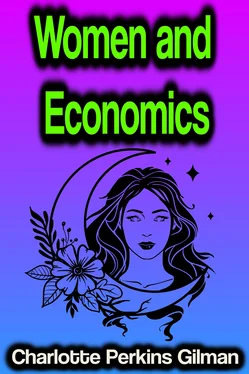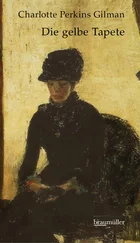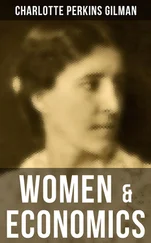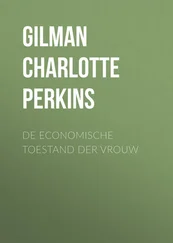And as sex-functions are only used occasionally, and race-functions are used all the time,–as they mate but yearly or tri-monthly, but eat daily and hourly,–the processes of obtaining food or of opposing constant enemies act more steadily than the processes of reproduction, and produce greater effect.
We find the order mammalia accordingly producing and suckling its young in the same manner through a wide variety of species which obtain their living in a different manner. The calf and colt and cub and kitten are produced by the same process; but the cow and horse, the bear and cat, are produced by different processes. And, though cow and bull, mare and stallion, differ as to sex, they are alike in species; and the likeness in species is greater than the difference in sex. Cow, mare, and cat are all females of the order mammalia, and so far alike; but how much more different they are than similar!
Natural selection develops race. Sexual selection develops sex. Sex-development is one throughout its varied forms, tending only to reproduce what is. But race-development rises ever in higher and higher manifestation of energy. As sexes, we share our distinction with the animal kingdom almost to the beginning of life, and with the vegetable world as well. As races, we differ in ascending degree; and the human race stands highest in the scale of life so far.
When, then, it can be shown that sex-distinction in the human race is so excessive as not only to affect injuriously its own purposes, but to check and pervert the progress of the race, it becomes a matter for most serious consideration. Nothing could be more inevitable, however, under our sexuo-economic relation. By the economic dependence of the human female upon the male, the balance of forces is altered. Natural selection no longer checks the action of sexual selection, but co-operates with it. Where both sexes obtain their food through the same exertions, from the same sources, under the same conditions, both sexes are acted upon alike, and developed alike by their environment. Where the two sexes obtain their food under different conditions, and where that difference consists in one of them being fed by the other, then the feeding sex becomes the environment of the fed. Man, in supporting woman, has become her economic environment. Under natural selection, every creature is modified to its environment, developing perforce the qualities needed to obtain its livelihood under that environment. Man, as the feeder of woman, becomes the strongest modifying force in her economic condition. Under sexual selection the human creature is of course modified to its mate, as with all creatures. When the mate becomes also the master, when economic necessity is added to sex-attraction, we have the two great evolutionary forces acting together to the same end; namely, to develope sex-distinction in the human female. For, in her position of economic dependence in the sex-relation, sex-distinction is with her not only a means of attracting a mate, as with all creatures, but a means of getting her livelihood, as is the case with no other creature under heaven. Because of the economic dependence of the human female on her mate, she is modified to sex to an excessive degree. This excessive modification she transmits to her children; and so is steadily implanted in the human constitution the morbid tendency to excess in this relation, which has acted so universally upon us in all ages, in spite of our best efforts to restrain it. It is not the normal sex-tendency, common to all creatures, but an abnormal sex-tendency, produced and maintained by the abnormal economic relation which makes one sex get its living from the other by the exercise of sex-functions. This is the immediate effect upon individuals of the peculiar sexuo-economic relation which obtains among us.
IN establishing the claim of excessive sex-distinction in the human race, much needs to be said to make clear to the general reader what is meant by the term. To the popular mind, both the coarsely familiar and the over-refined, "sexual" is thought to mean "sensual"; and the charge of excessive sex-distinction seems to be a reproach. This should be at once dismissed, as merely showing ignorance of the terms used. A man does not object to being called "masculine," nor a woman to being called "feminine." Yet whatever is masculine or feminine is sexual. To be distinguished by femininity is to be distinguished by sex. To be over-feminine is to be over-sexed. To manifest in excess any of the distinctions of sex, primary or secondary, is to be over-sexed. Our hypothetical peacock, with his too large and splendid tail, would be over-sexed, and no offence to his moral character!
The primary sex-distinctions in our race as in others consist merely in the essential organs and functions of reproduction. The secondary distinctions, and this is where we are to look for our largest excess–consist in all those differences in organ and function, in look and action, in habit, manner, method, occupation, behavior, which distinguish men from women. In a troop of horses, seen at a distance, the sexes are indistinguishable. In a herd of deer the males are distinguishable because of their antlers. The male lion is distinguished by his mane, the male cat only by a somewhat heavier build. In certain species of insects the male and female differ so widely in appearance that even naturalists have supposed them to belong to separate species. Beyond these distinctions lies that of conduct. Certain psychic attributes are manifested by either sex. The intensity of the maternal passion is a sex-distinction as much as the lion's mane or the stag's horns. The belligerence and dominance of the male is a sex-distinction: the modesty and timidity of the female is a sex-distinction. The tendency to "sit" is a sex-distinction of the hen: the tendency to strut is a sex-distinction of the cock. The tendency to fight is a sex-distinction of males in general: the tendency to protect and provide for, is a sex-distinction of females in general.
With the human race, whose chief activities are social, the initial tendency to sex-distinction is carried out in many varied functions. We have differentiated our industries, our responsibilities, our very virtues, along sex lines. It will therefore be clear that the claim of excessive sex-distinction in humanity, and especially in woman, does not carry with it any specific "moral" reproach, though it does in the larger sense prove a decided evil in its effect on human progress.
In primary distinctions our excess is not so marked as in the farther and subtler development; yet, even here, we have plain proof of it. Sex-energy in its primal manifestation is exhibited in the male of the human species to a degree far greater than is necessary for the processes of reproduction,–enough, indeed, to subvert and injure those processes. The direct injury to reproduction from the excessive indulgence of the male, and the indirect injury through its debilitating effect upon the female, together with the enormous evil to society produced by extra-marital indulgence,–these are facts quite generally known. We have recognized them for centuries, and sought to check the evil action by law, civil, social, moral. But we have treated it always as a field of voluntary action, not as a condition of morbid development. We have held it as right that man should be so, but wrong that man should do so. Nature does not work in that way. What it is right to be, it is right to do. What it is wrong to do, it is wrong to be. This inordinate demand in the human male is an excessive sex-distinction. In this, in a certain over-coarseness and hardness, a too great belligerence and pride, a too great subservience to the power of sex-attraction, we find the main marks of excessive sex-distinction in men. It has been always checked and offset in them by the healthful activities of racial life. Their energies have been called out and their faculties developed along all the lines of human progress. In the growth of industry, commerce, science, manufacture, government, art, religion, the male of our species has become human, far more than male. Strong as this passion is in him, inordinate as is his indulgence, he is a far more normal animal than the female of his species,–far less over-sexed. To him this field of special activity is but part of life,–an incident. The whole world remains besides. To her it is the world. This has been well stated in the familiar epigram of Madame de Staël,–"Love with man is an episode, with woman a history." It is in woman that we find most fully expressed the excessive sex-distinction of the human species,–physical, psychical, social. See first the physical manifestation.
Читать дальше












